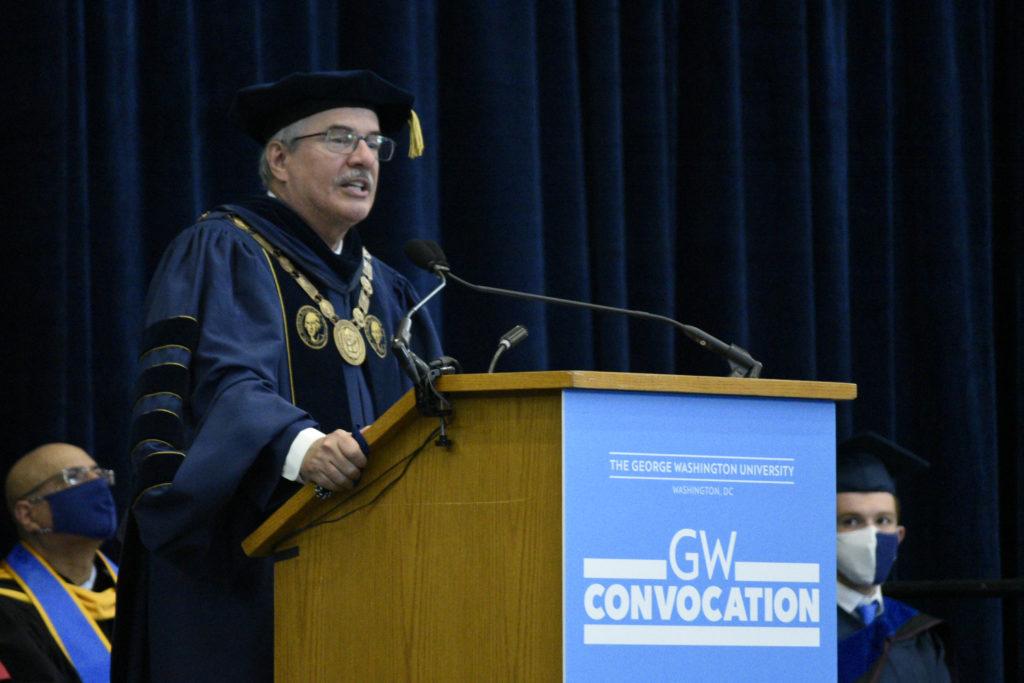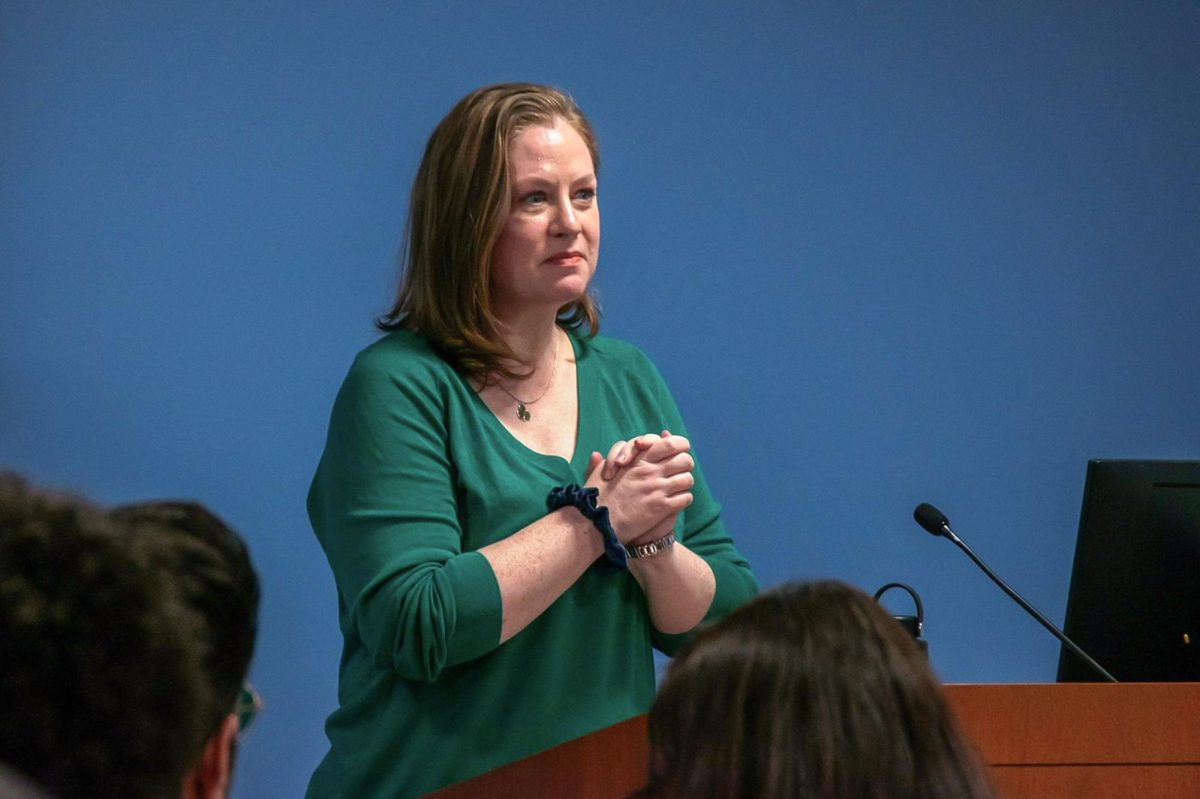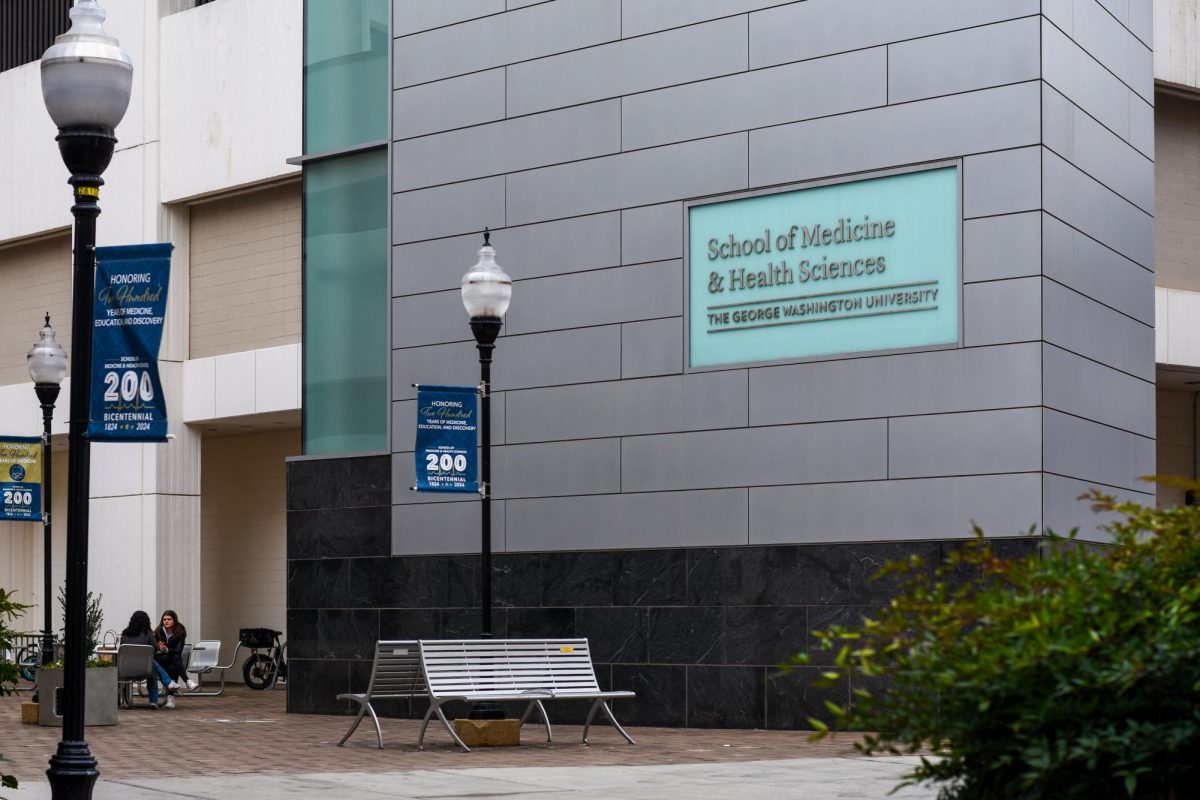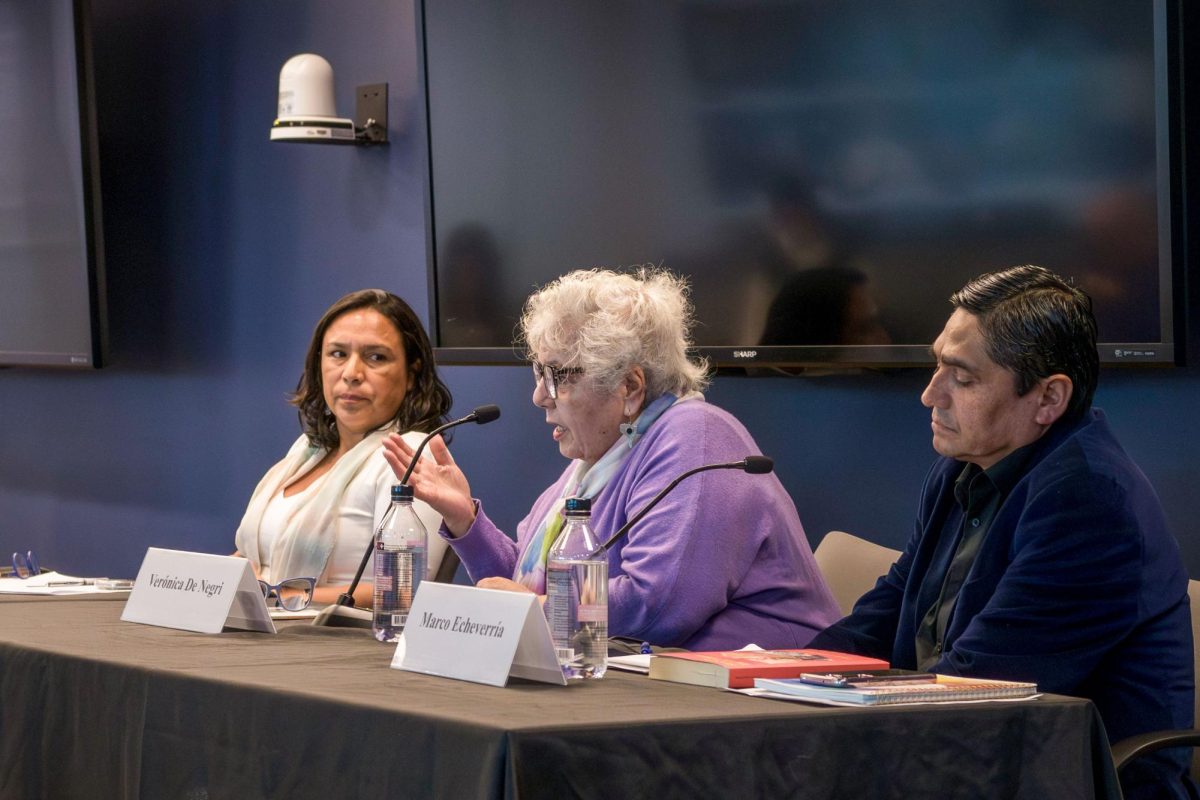Officials and student leaders hosted the Class of 2025 at GW’s first in-person convocation ceremony since 2019 at the Smith Center Saturday.
University President Thomas LeBlanc, Interim Provost Chris Bracey and faculty members across the undergraduate and graduate colleges welcomed and congratulated new and transfer students to campus after enduring 18 months of virtual learning. Louie Kahn, a senior majoring in political communication and political science, shared advice for incoming freshmen and tips on how to register to vote in the District.
LeBlanc urged students to recognize the “multiple” pandemics besides COVID-19 like climate change and disinformation campaigns and address those challenges with “active and unwavering” commitment. He said GW community members’ actions as individuals and as a whole on social movements will continue to define the University, so students need to work together toward building an inclusive community.
“We must continue to consider everyday how we can use our University’s teaching, research and service to improve the lives of others and support true equality no matter what one believes, the color of one’s skin, where someone is from or how they identify,” he said.
Bracey encouraged students to test and “refine” the theories they learn from professors in the classroom and participate in social justice movements for issues challenging the District like gentrification and sustainability.
“I have no doubt many of you are taking similar action and will continue to be active in these movements during your time here at GW,” he said.
Kahn advised students to keep an open mind when making friends with different political affiliations and fulfill the University’s “core values” of civic engagement and political activism through working on campaigns and attending protests. Kahn serves on the Board of Director of Hatchet Publications, Inc., which publishes The Hatchet.
“Be the reason why history will look back on the 2020s as the time when our democracy was better than ever because of the commitment of students like you who recognize the importance of preserving the American experiment for generations to come,” he said. “That’s on you.”








